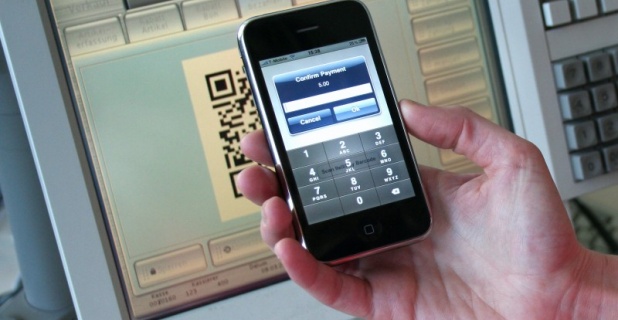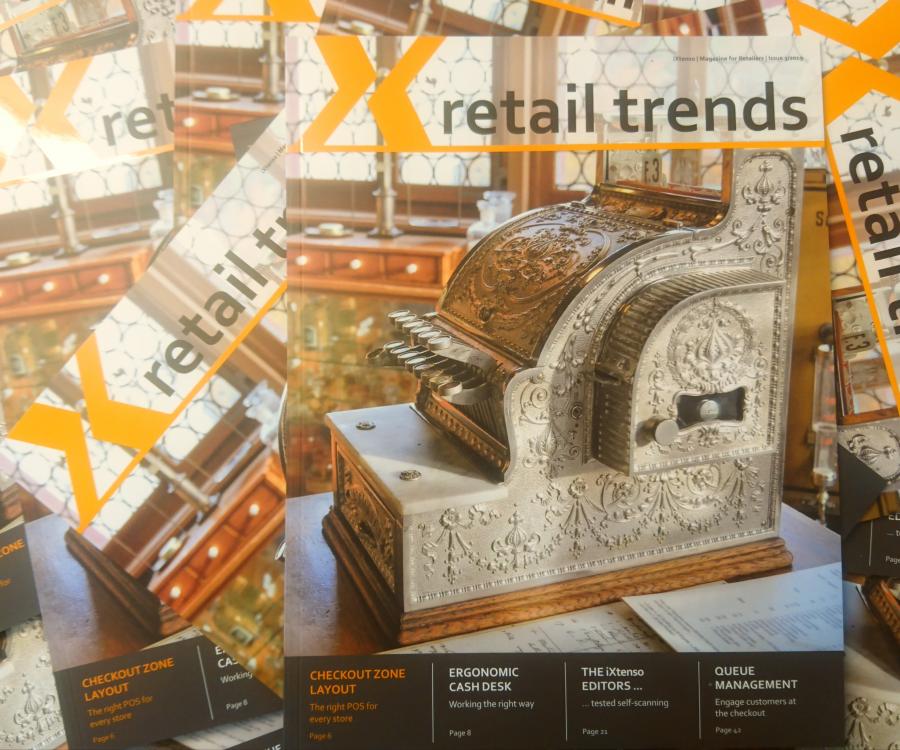News from the world of checkout counters – that’s annually an important topic at the EuroCIS. What has emerged over the past few years will intensify in February: Next to handling cash, cashless payments more and more take center stage. In doing so, retailers don’t just pay attention to their hardware, but also to the equipment of their customers. When do customers carry the new EC debit –and credit cards with chip in their wallets? When do they want to pay via cell phone? And what benefits does this provide for payment processing at the checkout counter?
Last year Easycash introduced the M-Pass in a testing environment. This year Itellium in Düsseldorf wants to make a splash with a soccer fan shop. M-Pass is a cellular phone supported online payment system, where Easycash acts as a strategic payment processor since December 2009. At first, it partnered with Vodafone and Telefonicá O2, and now T-Mobile is also on board. Easycash would also like to offer M-Pass for cell phone payments in retail. Payment is done via credit- or EC-debit card.
The IT-service provider Itellium joins cashless payments via smartphone and wants to invest millions. This provides retailers with an alternative to the large credit card companies. The former Karstadt daughter company would like to pitch the quadratic residue code (QR code) to retailers instead. Printed on the receipt or displayed on the display screen, the customer takes a picture of the code with his cell phone and by entering his PIN code approves the money transfer from his account. The advantage: Retailers don’t need to invest in Near Field Communication (NFC) at the POS, customers don’t require a NFC-compatible cell phone and they also don’t need to divulge any account information. They only need a small plug-in on their smartphone, a scan & buy app; payment then is done via the Itellipay system, which is already in place.
At the beginning of 2011 Itellium wants to test its system at a large supermarket chain store. Via a basic software update it is meant to be programmed into existing cash registers and thus also becomes attractive to small retailers. In addition, it could also be used in Online Shops or even on billboards. The codes can also provide additional information for the user on their cell phone. The codes open new doors for retailers in terms of mobile customer retention concepts or lottery games.
New cards with radio chips
A lot is also happening in terms of payments by card. In December the credit card provider Visa was able to report a big success: The Postbank (The German Post Office Bank) with its 6.4 million bank cards switches from the dominating provider MasterCard and its”Maestro“system entirely to the Visa System “V-Pay” by mid-2011. Thus far, Visa Europe only counted a few Volks- and Raiffeisenbanks (credit unions), the LBBW daughter company BW Bank and the Landesbank Berlin as its customers. According to Visa, from the roughly 92 million plastic cards issued in Germany now ten millions are attributed to V-Pay.
The Postbank justified the switch first and foremost due to better protection against skimming, the illegal tapping of credit card information during disbursements at the automatic teller machine. For withdrawals and at retail cash registers, in Germany Maestro and V-Pay work with the Girocard standard which is backed by the three German Banking Associations. However, customers can only use the V-Pay card in Europe, for travel to the US for instance they need a credit card.
Retailers have high expectations for the contactless payment via radio chips, because it eliminates insertion of a card into the terminal. More and more bank customers carry credit cards with NFC chips in their wallets. And more and more EC debit cards, like for instance by Payback, are also outfitted with this technology. Customers can make contactless payments without entering a PIN for amounts up to 25 Euro. The amount is simply debited by the chip – just like the failed smart card at the time.
Costs for credit card payments and cash
So far in many cases high transaction fees scare off retailers from accepting credit cards. With the contactless solution for small amounts, service providers like Easycash, Intercard or Telecash want to specifically target public transportation services, newspaper stands, butcher shops or bakeries, because they would charge less fees to them. For the use in bakeries and butcher shops another good argument can be made: sanitation. Handling cash while handling fresh foods at the same time is complicated and a pet peeve of discerning customers.
Quelle: Toshiba So far, particularly smaller retailers rarely ever calculate the cost that handling cash is causing. This is called cash handling in larger companies. And they usually know exactly how much money it is costing them: getting change at the bank, counting revenues and taking them to the bank – not to mention the dangers caused by theft, hold-ups or counterfeit money. Cash machines for change and bills make handling cash at the check out easier. They also take over so-called cash recycling, the re-disbursement of bills and coins.
Cashless payments also cost money. Retail in Germany is vehemently fighting to keep the inexpensive electronic direct debiting system (ELV). But this form of payment simply by signing a sales slip is a German national isolated payment solution in the standardized European payment area Sepa. The future of ELV is uncertain.
Cost also plays a major role in terms of terminals. In recent years, retail was hit with technical innovations that forced it into new investments. Now, with wireless technology, once again new terminals are displayed at the trade fair booths of service providers. The advocates of the QR code for the cell phone view this as their chance. But they need to first convince retailers of their alternative. And perhaps both methods might also establish themselves at the same time.
René Schellbach, iXtenso.com













